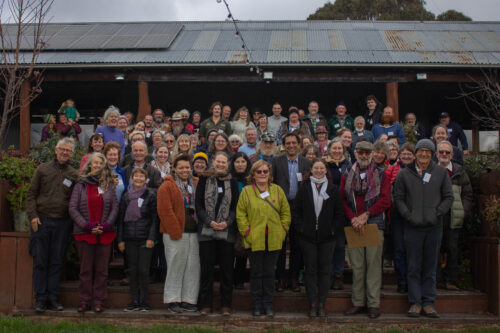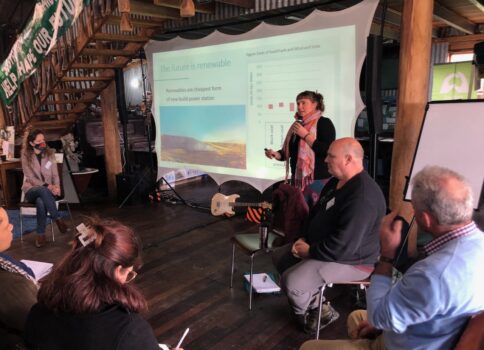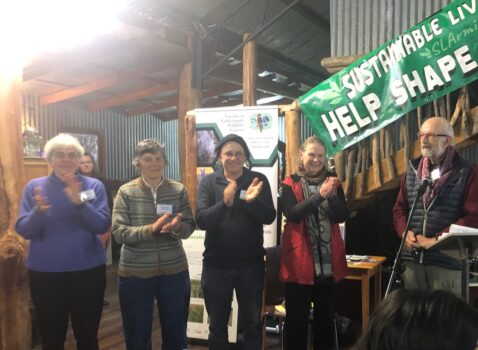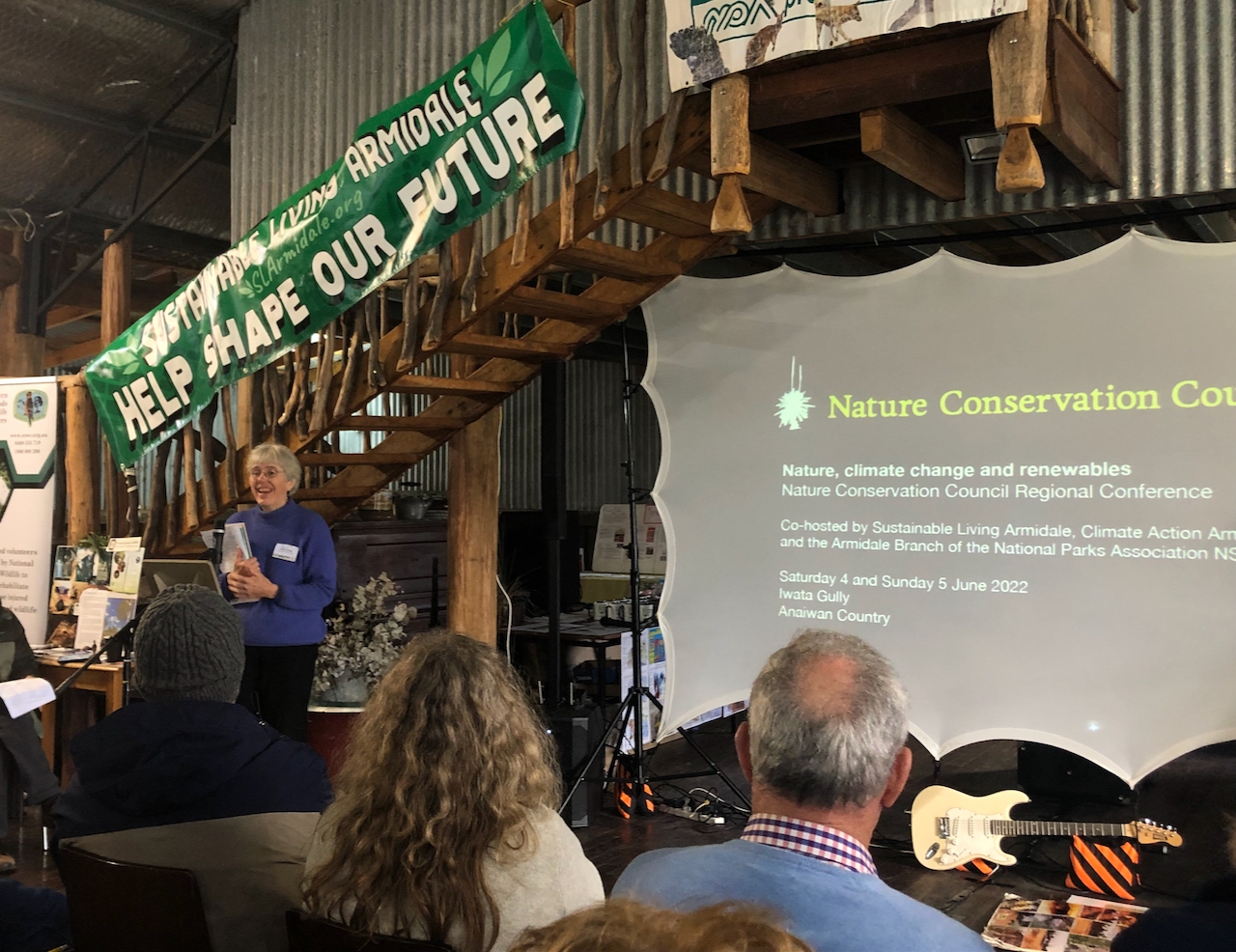 Community involvement in renewable energy projects – from bulk-buying solar panels for multiple households to communities co-owning a small solar farm – is helping to combat climate change while assisting the protection of nature along the way.
Community involvement in renewable energy projects – from bulk-buying solar panels for multiple households to communities co-owning a small solar farm – is helping to combat climate change while assisting the protection of nature along the way.
Community owned or subscribed renewable energy projects have grown hugely over the last few years and there are now 110 community energy groups around the country with 150 projects up and running, according to Dr Jarra Hicks, Director of the Community Power Agency.

Dr Jarra Hicks, Director the Community Power Agency, was one of the speakers in a panel on ‘Nature, climate change and renewables: threats and opportunities’. She was joined by Executive Officer of the National Parks Association of NSW, Gary Dunnett, and regenerative farmer and holistic grazing manager, Tim Wright (right).
Speaking at the Regional Conference of the Nature Conservation Council of NSW at Echidna Gully near Armidale on the weekend, Dr Hicks said these projects involve local people in developing and owning renewable energy, thereby bringing a range of local benefits.
‘When communities are involved transparently, people get to know what’s going on and are kept in broad consultation. This creates a better social license and stronger community support. And because they tend to develop local projects that are more appropriate, these also help protect nature and the natural values of the particular area. They take nature into account.’
And at the government level, northern communities are joining together to seek better local outcomes through the Renewable Energy Zone (REZ) according to Armidale Mayor Sam Coupland, who also addressed the conference. ‘The REZ is an opportunity to create region-building initiatives,’ he said.
If engagement of community is key, New England is on the forefront of this, Chris Gambian, the CEO of the Nature Conservation Council observed. ‘Local people know how important the protection of nature is for future generations. So, as is happening here in New England, communities need to come together, find common ground and take action together. You don’t need to be a greenie to see that nature supports us and that our future depends on addressing the causes and consequences of climate change.’
Other speakers at the Conference, which ran over two days and attracted more than 100 attendees from as far away as the NSW south coast, included the Executive Officer of the National Parks Association of NSW, Gary Dunnett, regenerative farmer and holistic grazing manager Tim Wright, and local groups who showcased a variety of initiatives.

The Conference’s local organisers Helen Webb, Kate Boyd, Garry Slocombe and Lynne Hosking are acknowledged by the Chair of the Nature Conservation Council, Don White.
